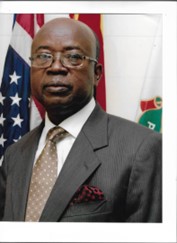By Kingsley LARBI (Rev.Prof)
In the rural enclave of Adimadim, Ghana, a silent but profound battle rages between the age-old practices of African Traditional Religion (ATR) and the emerging presence of Christianity. This intersection of faiths is not just a matter of religious preference but a deep-seated cultural conundrum that influences every aspect of life, from finance, health, and education to social practices and family dynamics. This is the story of the Author in his book Born to Win, Chapter 6.
Christianity on the periphery
Christian evangelism has had a rocky road in Adimadim. The earliest Christian presence was marked by the establishment of a small Presbyterian congregation in the suburb of Aboabo Sonkor, about six kilometers from the heart of Adimadim. This distance rendered the church’s influence almost negligible in the daily lives of the villagers. It wasn’t until later that branches of The Apostolic Church and the Church of Pentecost sprouted in the rural areas, yet these were still far from the core hamlets, leaving a fertile ground for ATR to flourish.
The peripatetic diviners of ATR
In the absence of a strong Christian presence, ATR diviners and shrine priests became the spiritual authorities in the community. Their rituals and consultations were not mere performances but integral parts of life, especially in times of sickness or misfortune. The Tigare shrine, known for its dramatic displays in the 1950s and 60s, became a beacon for those seeking answers to life’s ominous mysteries. The rituals often involved offerings of cola nuts, whisky, and livestock, and the diviners’ presence was both revered and feared.
Personal accounts: Between rituals and revelation
Growing up in this milieu, I witnessed firsthand the power and peril of ATR practices. My family, like many others, often turned to diviners for healing and protection. I recall vividly the menacing kotokoro stick, believed to expose witches, and the ritualistic applications of snakehead powder to ward off illness. These practices, though culturally ingrained, often left us in a state of perpetual fear and uncertainty.
Despite these deeply rooted traditions, there were glimmers of Christian influence. My introduction to Christianity came through the Presbyterian primary school at Aboabo Sonkor. However, this exposure was more about rote recitation of Bible verses than genuine faith formation. The school’s aim seemed to be more educational than evangelical, with no real emphasis on personal faith.
A turning point: The power of conversion
The tide began to turn when my illiterate uncle, Mr. Kofi Dade, converted to the Church of Pentecost. Despite having no formal education, he miraculously learned to read the Twi Bible, a testament to the transformative power of his newfound faith. This conversion marked the beginning of a significant shift in our family.
My mother’s chronic stomach ailment, which had long plagued her, was miraculously healed following her baptism at a Pentecostal convention in Koforidua. This miraculous healing ended our reliance on ATR diviners, highlighting the potent efficacy of Christian faith.
From skepticism to faith: My personal journey
My own journey to Christianity was marked by a series of health challenges that defied medical intervention. Severe headaches, which even Ghana’s leading neurosurgeon could not alleviate, led me to seek divine intervention. It was through persistent prayer and the support of my Christian colleagues that I experienced a miraculous healing, cementing my faith in Christianity’s power to transform and heal.
The struggle for authentic Christianity
Despite the growing number of churches in my ancestral town of Larteh, many residents continue to hold onto ATR practices. This persistence suggests a gap between the presence of Christian institutions and the lived reality of authentic Christian faith. The challenge lies in presenting a form of Christianity that not only preaches but also demonstrates the power of the gospel to meet the deepest needs of the people.
Conclusion:
The story of Adimadim is a microcosm of a broader African experience where tradition and modernity, ATR and Christianity, coexist and sometimes clash. For Christianity to truly take root, it must offer more than rituals; it must provide tangible evidence of its transformative power.
My own life stands as a testament to this power, having been shaped by the assurance and peace that come from a genuine encounter with Jesus Christ. This is the salvation that has not only delivered me from the shadows of ATR but has also given me a purpose to help others break free from the cycles of fear and superstition.
The journey continues, but with every step, the light of faith shines brighter, guiding us toward a future where tradition and faith can coexist, each enriching the other in the diverse tapestry of African spirituality.
The writer is the Founder & Chancellor, Regent University College of Science and Technology, Ghana










